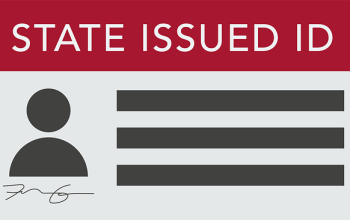In the realm of heavy-duty trucking, adhering to Department of Transportation (DOT) regulations and maintaining meticulous vehicle records are cornerstone principles ensuring operational efficiency and road safety. With evolving standards aimed at enhancing safety, fleet managers face the dual challenge of staying informed and compliant while managing ever-growing administrative tasks. This article delves into essential practices and modern software solutions that simplify compliance processes, allowing managers to optimize operations, reduce risks, and maintain high safety standards for their fleets.
- Understanding DOT Compliance Requirements for Trucks
- Importance of Accurate Commercial Vehicle Records
- Streamlining License Plate Lookup and Logbook Management
- Innovations in Fleet Management Software for Compliance
- Maintaining Proper Truck Registration for Road Safety
Understanding DOT Compliance Requirements for Trucks

Understanding DOT compliance requirements for trucks is paramount for any fleet operator. The Department of Transportation (DOT) sets and enforces regulations aimed at enhancing road safety, ensuring that commercial vehicles meet specific standards regarding design, operation, and maintenance. These rules cover a wide range of aspects, from vehicle weight and dimensions to driver hours of service and cargo securement. Non-compliance can result in hefty fines, vehicle impoundment, and damage to a company’s reputation.
Fleet managers must stay abreast of these regulations, which are regularly updated and can vary across different modes of transport (e.g., trucks, buses, hazardous materials carriers). Key areas of focus include proper registration, regular inspections, accurate record-keeping, and adherence to safety standards for both drivers and cargo. Fortunately, advancements in fleet management software have made it easier for managers to stay organized, track compliance, and quickly access critical vehicle information.
Importance of Accurate Commercial Vehicle Records

Accurate commercial vehicle records are indispensable for several reasons. They serve as a comprehensive log of each truck’s and trailer’s history, including maintenance schedules, inspections, and any modifications made. This information is crucial for ensuring the safety and reliability of these heavy-duty machines, which often operate under demanding conditions. By keeping detailed records, fleet managers can identify potential issues before they become serious problems, reducing the risk of accidents and costly repairs.
Moreover, accurate records are essential for maintaining compliance with Department of Transportation (DOT) regulations. DOT enforces strict standards to promote road safety, and proper documentation is vital to demonstrate adherence to these rules. Commercial vehicle records facilitate license plate lookups, vehicle inspections, and driver qualifications verification, all of which are critical components of staying compliant and avoiding penalties or legal issues.
Streamlining License Plate Lookup and Logbook Management

Recent advancements in fleet management software have brought about significant improvements in how businesses handle license plate lookup and logbook records management. Traditionally, these tasks involved manual, time-consuming processes that were prone to errors. However, digital solutions now allow for automatic data entry and real-time updates, ensuring accuracy and efficiency. Fleet managers can quickly access vehicle information, including ownership details, maintenance records, and compliance status, by simply entering a license plate number.
This streamlined approach not only saves time but also reduces the risk of oversight or mistake. Digital logbook systems enable managers to track driver behavior, trip details, and vehicle performance, facilitating better decision-making for maintenance and operational planning. As regulatory requirements continue to evolve, these innovative tools prove indispensable in keeping fleets compliant and operations running smoothly.
Innovations in Fleet Management Software for Compliance

Innovations in fleet management software have significantly enhanced compliance with Department of Transportation (DOT) regulations. These advancements streamline essential tasks like license plate lookup, allowing managers to effortlessly verify vehicle ownership and history. By integrating real-time data from various sources, including government databases, fleet managers can access accurate and up-to-date information on their commercial vehicles.
Moreover, these software solutions facilitate logbook records management by digitizing and organizing driver logs. This not only simplifies the process of maintaining compliance but also enables better tracking of vehicle maintenance schedules, fuel consumption, and other critical metrics. As a result, fleet managers can ensure that every aspect of their operations adheres to DOT standards, fostering a culture of safety and efficiency.
Maintaining Proper Truck Registration for Road Safety

Maintaining proper truck registration is an integral part of ensuring road safety and preventing costly penalties. With each vehicle requiring unique identification and regular updates, accurate records are essential. This involves keeping track of expiration dates, license plate assignments, and any changes in ownership or operations. Every jurisdiction has its own regulations and standards for vehicle licensing, demanding strict adherence to avoid legal issues and potential accidents caused by unregistered or improperly registered vehicles.
Regular registration renewals and prompt updates ensure that fleet managers stay compliant with local laws. Accurate records facilitate efficient management of vehicle life cycles, enabling timely maintenance checks and safety inspections. By embracing digital solutions like specialized fleet management software, companies can automate these processes, enhancing overall operational efficiency while prioritizing road safety across their entire commercial fleet.
In conclusion, managing heavy-duty trucks and trailers involves adhering to stringent DOT compliance standards and maintaining meticulous records. By leveraging recent innovations in fleet management software, managers can efficiently navigate license plate lookups and logbook management, ensuring they stay compliant while focusing on their core business objectives. This not only enhances operational smoothness but also prioritizes road safety, reflecting a commitment to both efficiency and accountability.



